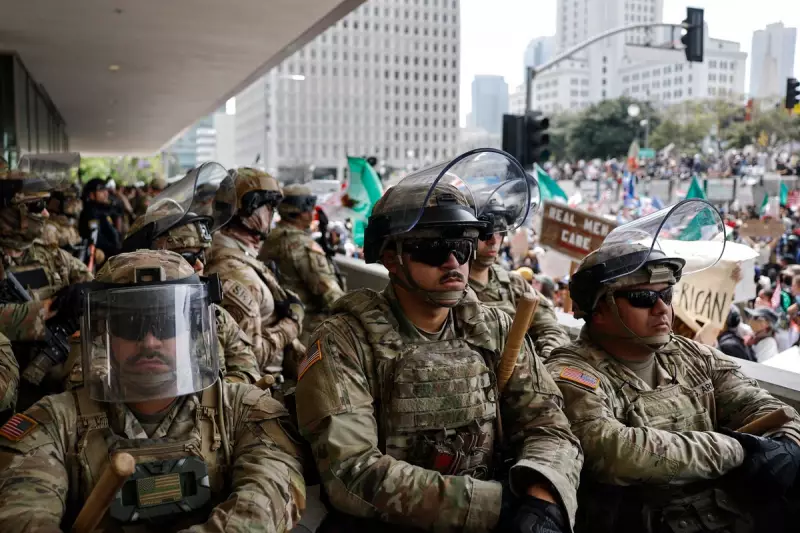
In a bold and controversial pledge, former US President Donald Trump has outlined a radical plan to unilaterally deploy the National Guard to American cities if he returns to the White House. This strategy, which would dramatically expand executive power, is being framed as a necessary measure to "decimate crime."
A Presidential Power Grab
Trump's proposal would bypass a long-standing requirement for state governors to approve federal military deployment within their borders. This move would fundamentally alter the relationship between the federal government and individual states, concentrating unprecedented authority in the Oval Office.
Speaking to his supporters, Trump portrayed the plan as the only solution to what he describes as out-of-control crime in Democrat-led cities. He promised to "take over" the problematic areas and restore order through a massive show of force.
Critics Cry Authoritarianism
The announcement has been met with immediate and fierce criticism from legal experts and political opponents. Many have condemned the idea as a dangerous, authoritarian overreach that violates the principles of federalism enshrined in the US Constitution.
Critics argue that such an action would set a perilous precedent, allowing a president to use the military for domestic law enforcement against the wishes of local elected officials. This, they warn, edges closer to tactics seen in autocratic regimes rather than democratic nations.
The Context of a Campaign
This hardline policy proposition is a central pillar of Trump's 2024 election campaign. It is designed to resonate with his base by presenting a stark, law-and-order contrast to the current administration.
By focusing on crime in urban areas, Trump aims to amplify his narrative of a nation in decline that requires a strong, uncompromising leader to restore safety and stability. The plan is likely to become a major flashpoint in the upcoming election debates.





